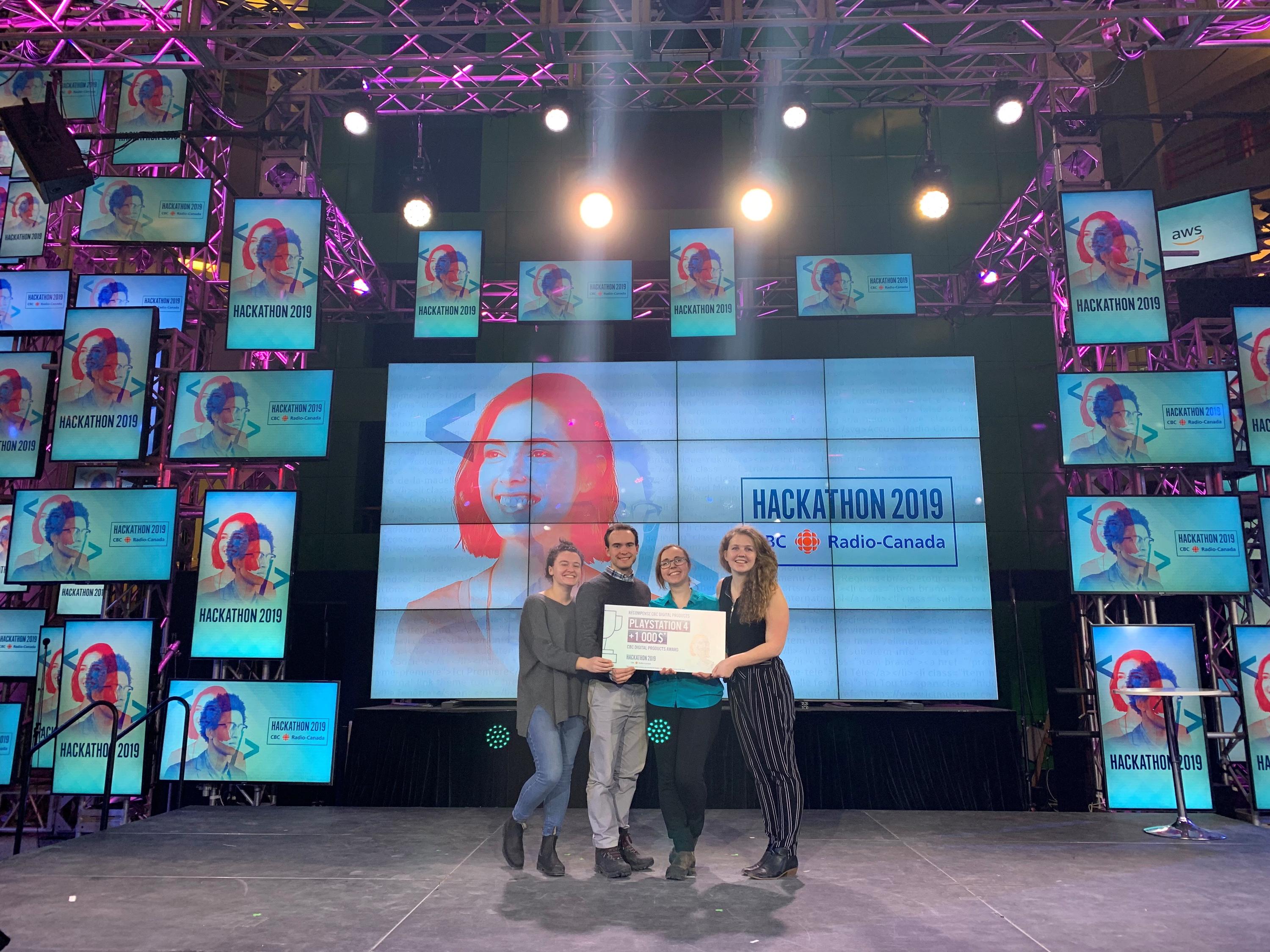
The team was composed of four students from Grebel, Angela Krone, Charlotte Baker, Jonathan Smith, and Margie McCloskey, as well as a fellow University of Waterloo student, Zi Kai Chen. The students are in diverse university programs, including Nanotechnology Engineering, Global Business and Digital Arts, and Grebel’s Peace and Conflict Studies program. With students in a variety of academic programs, Grebel is a natural incubator for interdisciplinary teams that are able to collaboratively tackle problems from several perspectives.
The prototype that the team developed is called “All News for All People,” which plays personalized clips from suggested podcasts so that users understand why that podcast was recommended to them. “The idea is that very different people can be interested in the same news for different reasons. We want to encourage discussion about the same issues from different perspectives,” explained Smith, a Business Administration and Computer Science student. The team proposed that by providing “the same content with a unique perspective to different users, we are able to tackle the issue of news recommendations systems which create an echo chamber. We show that it is possible to personalize in other ways to increase engagement without losing impartiality.”
Three of the students on the team have taken Peace and Conflict Studies courses taught by Centre for Peace Advancement Director Paul Heidebrecht on the topics of Peace and Engineering and Peacebuilding and Social Innovation. Course offerings that bridge academic divides, opportunities like the CBC/Radio-Canada Hackathon, and students like those on the team that competed are what inspired Grebel’s creation of the new PeaceTech Living Learning Community, launching September 2019.
Watch the team’s pitch, or learn more about the PeaceTech Living Learning Community.